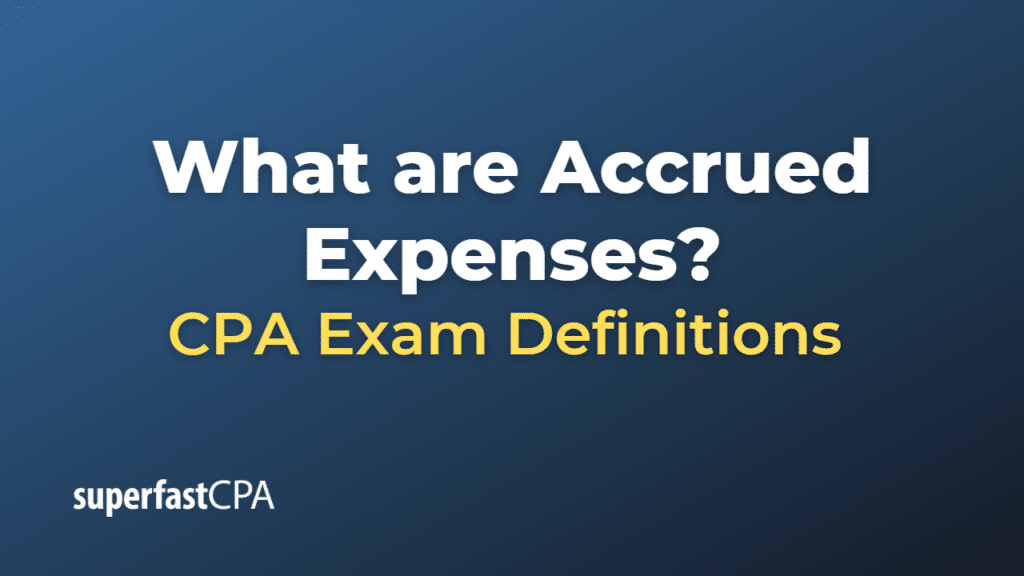Accrued Expenses
Accrued expenses, also known as accrued liabilities, are expenses that a company has incurred in a given accounting period but has not yet paid. These expenses are recorded in the financial statements under the accrual basis of accounting, which recognizes economic events when they occur, regardless of when the cash is exchanged.
Accrued expenses are important for adhering to the matching principle, which states that revenues and expenses should be recognized in the same accounting period in which they are earned or incurred. This allows for a better understanding of a company’s financial health and helps in making informed decisions for business management and investors.
Examples of common accrued expenses include:
- Salaries and wages: A company may owe wages and salaries to its employees for work performed during the accounting period but not yet paid at the period’s end.
- Utilities: Expenses for utilities like electricity, water, and gas that have been used by a company during the accounting period but not yet paid for.
- Interest: Interest expenses accrued on loans or lines of credit that haven’t been paid yet.
- Taxes: Taxes owed by a company based on its income or other taxable events during the accounting period but not yet paid.
- Professional services: A company may receive professional services, such as legal or accounting services, during an accounting period but not pay for those services until it receives an invoice.
Accrued expenses are typically recorded as journal entries that debit the relevant expense account and credit an accrued liabilities or accounts payable account. This ensures that the expense is recognized in the same accounting period in which it was incurred, in accordance with the matching principle.
By recognizing accrued expenses in the financial statements, companies can more accurately reflect their financial performance and obligations in a given accounting period, providing a clearer picture of their financial health for management, investors, and other stakeholders.
Example of Accrued Expenses
Let’s consider a hypothetical example to illustrate accrued expenses.
Imagine a company called “Sunshine Hotels” that operates a chain of hotels. Sunshine Hotels follows the accrual basis of accounting. The company’s accounting period ends on December 31st. Sunshine Hotels receives its utility bills for electricity, water, and gas on the 10th of each month, and the bill covers the previous month’s usage.
On December 31st, Sunshine Hotels has not yet received the utility bill for December, but it still needs to account for the utility expenses it incurred during the month. Let’s assume that based on the previous months’ bills and the company’s estimates, the utility expenses for December are $25,000.
To account for the accrued utility expenses, Sunshine Hotels would record the following journal entry at the end of the accounting period on December 31st:
Debit: Utility Expense – $25,000 Credit: Accrued Utilities Payable – $25,000
This journal entry recognizes the utility expenses incurred in December, even though the payment will be made in the following month after receiving the bill. The Accrued Utilities Payable account is a liability account that represents the company’s obligation to pay the utility expenses when the bill is received.
By recording the accrued expenses, Sunshine Hotels ensures that its financial statements accurately reflect its financial performance and obligations for the accounting period, providing a clearer picture of its financial position for management, investors, and other stakeholders.













